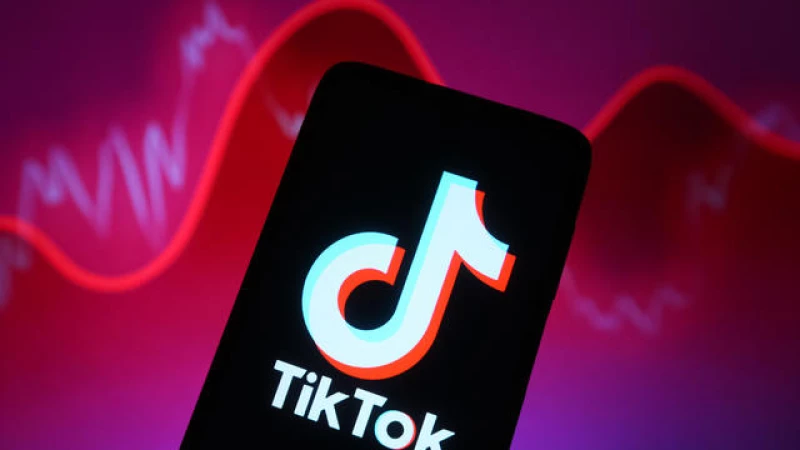Washington — A bill that has passed through the Senate with a vote of 79-18 could potentially result in a nationwide prohibition of TikTok, posing a significant threat to the popular social media platform's operations in the United States.
While some legislators emphasize that they do not intend to outright ban the app, which is utilized by around 170 million Americans, they argue that the decision ultimately rests with ByteDance, TikTok's parent company based in China.
Under the terms of the legislation, ByteDance is required to divest its ownership in TikTok within a year to maintain the app's presence in the U.S. However, the Chinese government, which holds authority over any potential sale, is against a forced divestiture. Failure to comply with the divestment requirement would result in TikTok losing access to app stores and web-hosting services, effectively prohibiting its operation in the country. The anticipated legal disputes could further prolong the process.
"We are not trying to silence your voice. This is not a prohibition on a service you enjoy," Senator Mark Warner, a Democrat from Virginia and the head of the Senate Intelligence Committee, declared on Tuesday during a speech on the Senate floor. Warner acknowledged the skepticism many Americans have towards the proposed legislation, stating, "At the end of the day, they have not been privy to the same information that Congress has seen."
What is the reason behind Congress's push to ban TikTok?
Congress members have raised concerns about the popular video-sharing app's connections to China and have made attempts to regulate it, despite previous unsuccessful efforts to impose widespread restrictions. U.S. officials have repeatedly cautioned that TikTok poses a threat to national security as the Chinese government could potentially exploit it for espionage purposes or manipulate it to influence American public opinion covertly by amplifying or suppressing specific content.
The worries expressed by U.S. officials are justified, as Chinese national security laws mandate organizations to collaborate in intelligence operations. FBI Director Christopher Wray informed members of the House Intelligence Committee in March that the Chinese government could compromise the security of Americans' devices through the TikTok software.
"This application acts as a surveillance tool on Americans' phones, gathering data and exploiting personal information," remarked Representative Michael McCaul, a Republican from Texas who leads the House Foreign Affairs Committee, prior to the bill's approval by the lower chamber as part of a broader foreign aid package.
Lawmakers express concerns over data sharing and Chinese influence on TikTok
In closed-door briefings, members of Congress have been briefed on the concerning practices of data collection and sharing that do not align with American security interests, according to Senator Chris Coons, a Democrat from Delaware.
Senator Marco Rubio, the leading Republican on the Senate Intelligence Committee, raised alarms last month about the Chinese government's potential to sway the opinions of many young TikTok users who rely on the platform as their primary source of news.
"This poses a significant national security threat," Rubio emphasized.
Senator Mark Warner highlighted on Tuesday the intense lobbying efforts by Chinese diplomats to sway congressional staff against legislation aimed at regulating TikTok, indicating the high level of importance Chinese President Xi Jinping places on the app.
Senate Minority Whip John Thune described the lobbying as a clear indication of the Chinese government's emphasis on controlling Americans' information and molding their TikTok experience.
Counterarguments to banning TikTok
TikTok has refuted claims of being under Chinese government influence and has accused lawmakers advocating for restrictions of infringing on individuals' freedom of speech. Michael Beckerman, a TikTok executive, labeled the proposed legislation as unconstitutional and promised to challenge it legally, as per an internal company memo obtained by CBS News and circulated among TikTok employees over the weekend.
We will not back down, says memo
"We'll continue to fight, as this legislation is a clear violation of the First Amendment rights of the 170 million Americans on TikTok and would have devastating consequences for the 7 million small businesses that use TikTok to reach new customers, sell their products, and create new jobs. This is the beginning, not the end of this long process," the memo said.
TikTok ban equals censorship, says Senator
Democratic Sen. Ed Markey of Massachusetts said Tuesday on the Senate floor that TikTok poses national security risks, but the legislation amounted to "censorship" because it could deny Americans access to a platform they rely on for news, business purposes, building a community and connecting with others.
"We should be very clear about the likely outcome of this law," Markey said. "It's really just a TikTok ban. And once we properly acknowledge that this bill is a TikTok ban, we can better see its impact on free expression."
Senator warns of potential consequences
Sen. Rand Paul, a Republican from Kentucky, wrote in a recent opinion piece that the law could be a gateway to the government forcing the sale of other companies.
"If the damage to one company weren't enough, there is a very real danger this ham-fisted assault on TikTok may actually give the government the power to force the sale of other companies," he wrote and predicted that the Supreme Court will ultimately rule the law is unconstitutional.







